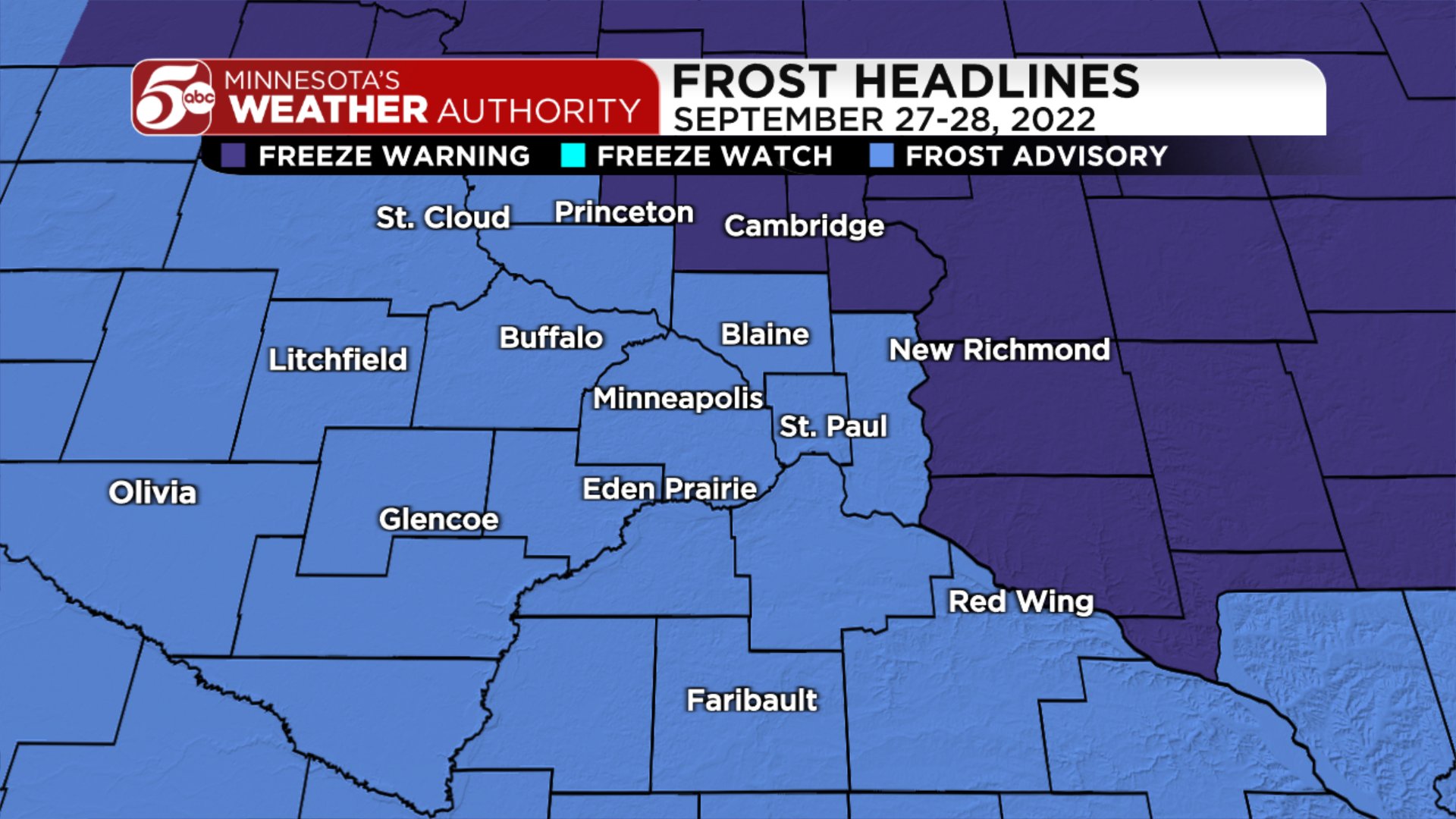First frost expected in Twin Cities Wednesday morning; hard freeze possible up north
[anvplayer video=”5137607″ station=”998122″]
UPDATE 11:42 a.m. 9/27/22: 5 EYEWITNESS NEWS meteorologist Matt Serwe predicts a chilly night ahead with the potential for a hard freeze in parts of northern Minnesota.
Tuesday morning, communities in the fringes of the metro and beyond experienced frost, and Wednesday morning, the Twin Cities residents could have their first frost of the year.
Serwe says temperatures may drop close to the freezing mark within the metro Wednesday morning, but the coldest temperatures – including figures below freezing – are expected outside of that range.
Read more about what this weather could mean for Minnesotans in an earlier version of this story below.
Stay updated on all things weather HERE.
INITIAL REPORT 9:22 a.m. 9/27/22: Weather authorities will likely issue a frost advisory later on Tuesday that will warn of a Wednesday morning freeze throughout most of the Twin Cities metro, according to 5 EYEWITNESS NEWS Chief Meteorologist Ken Barlow.

(KSTP/Matt Serwe)
The National Weather Service Twin Cities predicts low temperatures in the mid-30s overnight.
The metro area was not included in the frost advisories that other parts of Minnesota and Wisconsin experienced Tuesday morning. Those advisories remained in effect through mid-morning Tuesday.
On Monday, 5 EYEWITNESS NEWS meteorologist Matt Serwe started warning people to take first frost precautions, like covering plants.
RELATED: Get Growing: Plant cover for first frost
The frost will not immediately change the ragweed pollen in the air. The allergy season’s typical end date is in mid-October, according to the Minnesota Department of Health. The department says allergy seasons have been getting longer on average:
“Increasing evidence suggests that climate change factors, such as warmer temperatures and rising concentrations of carbon dioxide (a potent plant food), are leading to longer pollen seasons. Climate changes may also cause certain trees and plants to produce more pollen,” MDOH said.
“Ragweed is one of the most common causes of seasonal allergies in the United States. A study updated by Ziska et al., in 2016, found that the ragweed season in Minnesota increased by 18-21 days from 1995-2015.”
Follow our meteorologists to track when the first hard freeze will happen.